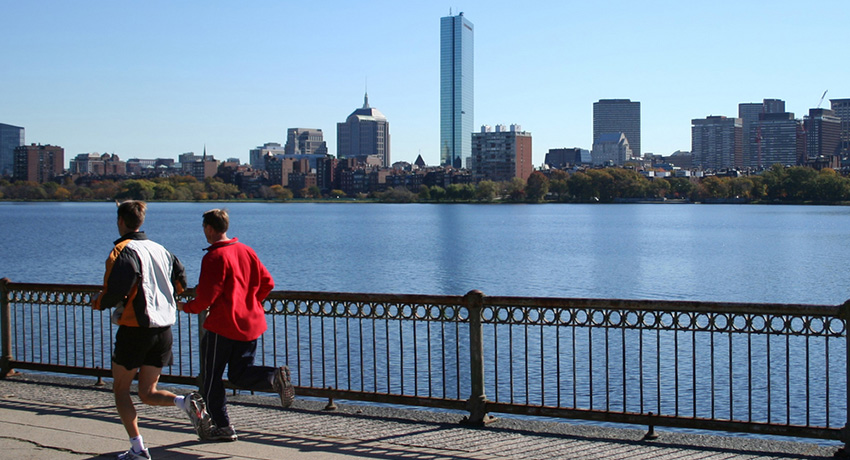Mayor Menino Launches Fit City Boston

Runners along the Charles. Photo via Shutterstock
Mayor Tom Menino launched Fit City Boston this week, which is an initiative to examine how Boston’s urban environment impacts resident health. The initiative is modeled after Fit City New York, which is co-hosted by the American Institute of Architects New York Chapter and the NYC Department of Health and Mental Hygiene. The ultimate goal of the program is to make Boston the healthiest city in America. According to Forbes, we are already the third healthiest city in the country, so it’s not inconceivable that we would be number one soon. Fit City will examine how factors like community design, social policies, and resource distribution can impact daily choices and physical health.
More than 150 community leaders including local and national planners, architects, developers, public officials, academics, and residents met to discuss how the city can improve resources to be healthier. “Some factors that affect health are personal decisions, but others are out of an individual’s control – like whether there are spaces to walk and play outside,” Mayor Menino said in a press release. “We already have many of the world’s leading health institutions and leaders in design, planning and development here in Boston, as well as a revitalized harbor and world-class parks system. Fit City Boston will bring all these resources together to help ensure our city’s built environment allows all Bostonians to achieve their optimal health.”
According to the Mayor’s office, more than half of adult Bostonians are obese or overweight. This can lead to preventable chronic health conditions like obesity, type 2 diabetes, and asthma. These health problems cannot be solved by public health or health care alone. Mayor Menino says that the solutions will also have to come from the city itself.
“Fit City Boston recognizes that how communities are designed and developed directly affects which residents have easy access to physical activity, nutritious food, healthy housing, and clean air,” said Dr. Barbara Ferrer, executive director of the Boston Public Health Commission, a member of the initiative steering committee. “While we work to improve individual and community health, it is increasingly important that we focus on the physical places where we live, work, and play, and their effect on health, as well. Fit City Boston gives us the opportunity to get new perspectives and tap into new resources for our work.”
Here are the goals for Fit City:
- Build on the best examples of work already underway to improve Boston’s built environment to improve health.
- Promote the exchange of ideas for building healthier, more sustainable, and more equitable urban environments in Boston with positive economic development and business results.
- Develop plans to take best practices to scale, institutionalize proven ideas, and set a big picture vision for future work.
“Boston is truly fortunate to be the ‘living lab’ for many researchers from our great academic institutions,” said Dr. John D. Spengler, professor and director of the Center for Health and the Global Environment at the Harvard School of Public Health. “Working with city schools to reduce obesity, with the housing authorities on asthma, pest control and smoking cessation, planning agencies on climate adaptation and citizens of South Boston and Chinatown concerned with traffic impacts on their health, faculty and students are helping to shape Boston’s future.”


